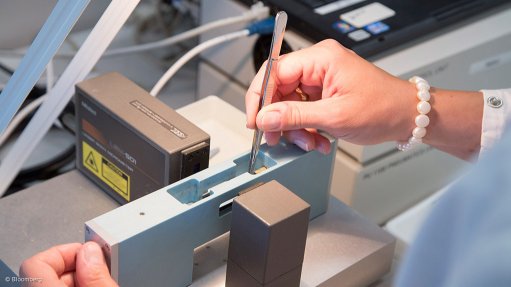
Photo by: Bloomberg
After receiving a record 925 applications from 41 countries for its yearly Innovation Prize for Africa (IPA) awards, the African Innovation Foundation (AIF) has shortlisted ten nominees who remain in the running for the $100 000 grand prize.
Launched by the AIF in 2011, the IPA awards rewarded innovators for their home-grown, market-led innovations that contributed to Africa’s growth, development and prosperity and this year’s finalists showcased a diverse range of innovations for application in agriculture, education and e-health, besides others.
Morocco-based Adnane Remmal was shortlisted for a patented formula that offered an alternative to livestock antibiotics, while Kenyan Mwaura Muriu was shortlisted for a risk-sharing agribusiness funding model.
Fellow finalist David Gluckman, of South Africa, was shortlisted for an an off-the-shelf fire detection device and alert service alongside Burundi-born Jean Bosco Kazirukanyo, whose new type of cement promised to protect water sources against carcinogenic lubrication oil spills.
South African Johann Pierre Kok’s scientific engineering educational box, ‘Seebox’, earned him a top-ten spot, while Kenyan Kyai Mullei was shortlisted for the development of a mobile application that empowered individuals and organisations to initiate and manage fundraisers through sms or Web devices.
Fellow finalist Lesley Erica Scott, of South Africa, was recognised for the development of a product that examined the accuracy of machines used to detect tuberculosis, while Cameroonian Marc Arthur Zang was shortlisted for his creation of an affordable tablet that recorded and processed a patient’s heart signal before transferring it to a remote station using mobile phone networks.
Ugandan Samuel Otukol was, meanwhile, shortlisted for his innovation, which proposed an alternative source of viable drinkable water in areas of water shortage or where only seawater was available, while fellow finalist, South African Neil du Preez earned his top-ten spot for a suite of technologies that included recovering the kinetic energy that was typically lost in the braking process, converting it into electricity and storing it.
The foundation was, this year, partnering with the Moroccan Ministry of Industry, Trade, Investment and the Digital Economy and would hold the awards ceremony in Skhirat, Morcco, on May 12 and 13.
The second and third runner-up would each receive price money of $25 000.